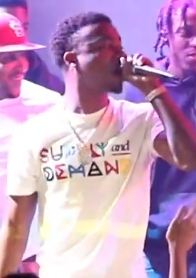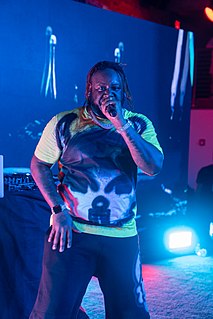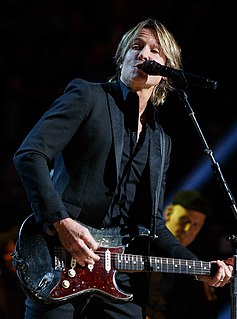A Quote by Roddy Ricch
When I made 'Feed tha Streets,' those were the only 17 songs I had made, period. There was no cutting songs out or adding other songs in.
Related Quotes
And I thought about how many people have loved those songs. And how many people got through a lot of bad times because of those songs. And how many people enjoyed good times with those songs. And how much those songs really mean. I think it would be great to have written one of those songs. I bet if I wrote one of them, I would be very proud. I hope the people who wrote those songs are happy. I hope they feel it's enough. I really do because they've made me happy. And I'm only one person.
I used to write songs that mimicked other songs that I would hear as a kid, cos I was 12 years old when I was writing those, right. And you hear a radio so all I'd write about was [sings] "hey girl, look at you", you know what I mean. I think that even doing that made it easier for me to write non-personal songs because, from a kid, I never wrote personal songs, they were always like mimicking. And now I'm just trying to understand my writing and where it's coming from.
The choice that I made was from my best music, for the songs that I knew that the public liked. Then, when I recorded my new songs I found that my old material had not faded, it was still current, the music was good and the songs were great. I sat in my house and listened, got the chills, and I thought, how great is that? It hasn't dated, it hasn't gone anywhere, and it's great.



































